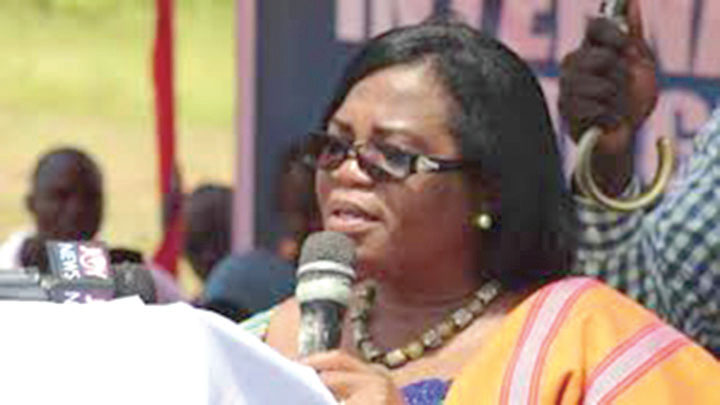
Men are critical change agents for ending gender inequalities
Men have been identified as critical agents in bridging the gender inequality gaps and issues on Sexual Reproductive Health Rights.
Over the years, men have been an untapped resource in such gender initiatives which had contributed to the lag in achieving greater successes in that area.
Advertisement
As a way to address the gap, the Department of Gender of the Western Region has engaged and sensitised about 90 men and boys drawn from the Wassa East District to be "change agents" in ending gender inequalities.
The department, under the auspices of the Western Regional Coordinating Council (WRCC) with support from the Joint United Nations Population Fund (UNFPA) and UNICEF Programme, organised the programme.
Support female counterparts
The Acting Director of the Department, Ms Maribel Okine, reiterated the need for men and boys to support their female counterparts to develop their potentials for development in all facets of life.
"Historically, men and boys were seen as custodians of power within the society; and, therefore, the need to engage with them to create gender awareness for them to support in the eradication of customs and systems that perpetrated inequalities against women," she noted.
“The forum, therefore, is to point out the critical roles of men and their responsibilities in working towards a gender equitable community for the benefit of all,” Ms Okine stated.
Stereotypical ideologies
The District Chief Executive (DCE) of Wassa East District Assembly, Mr Wilson Arthur, in his welcoming statement, said the programme had been implemented in the district for a year now.
He said men needed to understand the dynamics of a developed world where women were not side-lined, but given the opportunity to contribute their quota to the developmental efforts of their homes and their communities.
Mr Arthur, therefore, entreated the participants to part ways with stereotypical ideologies about women and support them in whatever way they could to bring about fairness and sustainable development within the district and the nation.
Decision-making
The Secretary of the Ebukrom Youth Association, Mr Emmanuel Quansah, said, "I have come to understand that men can empower women through education and by encouraging young girls in the schools and churches in our communities."
He advocated that women be included in the decision-making processes in the community, citing Unit Committee and other local government systems as avenues for women’s perspective to be brought to bear on issues affecting the community.
Mr Agyapa Buah of the Support for Community Mobilisation Projects/Programmes (SCMPP), an NGO, took participants through the basic concepts of gender advocated roles to be modified in households to enable the potentials of both boys and girls to be developed.
He spoke against some poor socialication processes that reinforced gender inequalities and called for family dialogue.
Sexual and reproductive health
The Deputy Regional Focal Person for Adolescent Development Programme, Ms Kuntu Anaman, took participants through the components of Sexual and Reproductive Health and Rights.
She stated that Sexual Reproductive Health and Rights were not only about family planning, but a state where an individual enjoyed a complete physical, mental and social well-being in all matters relating to sexuality and the reproductive system.
Ms Anaman encouraged participants to have visions for the boys growing up, even if there were no role models in their community to inspire them.
"Do not engage in indiscriminate sexual activities to exhibit your manliness.
“HIV/AIDS and other health conditions are factors you should consider at this stage of your life to enjoy a safe and sound Sexual Reproductive Health and Rights," she admonished.
She said the sexual reproductive health services rendered by the Ghana Health Service (GHS) did not only cover family planning but also addressed issues, including counselling, personal hygiene, alcohol, drug and substance abuse, as well as preventing common disease infections among adolescents seeking help for drug abuse and healthcare needs.
Touching on the COVID-19 pandemic, Ms Anaman entreated the participants to strictly abide by the WHO and GHS protocols outlined to curb the spread of the virus and its related casualties.
She urged them to also take proper care of the reusable nose masks to prevent being infected and endeavour to eat balanced diet and be active.
Some participants appreciated the programme, saying, "We have come to understand that both men and women have a responsibility in the home and community in the upbringing of children." — GNA



